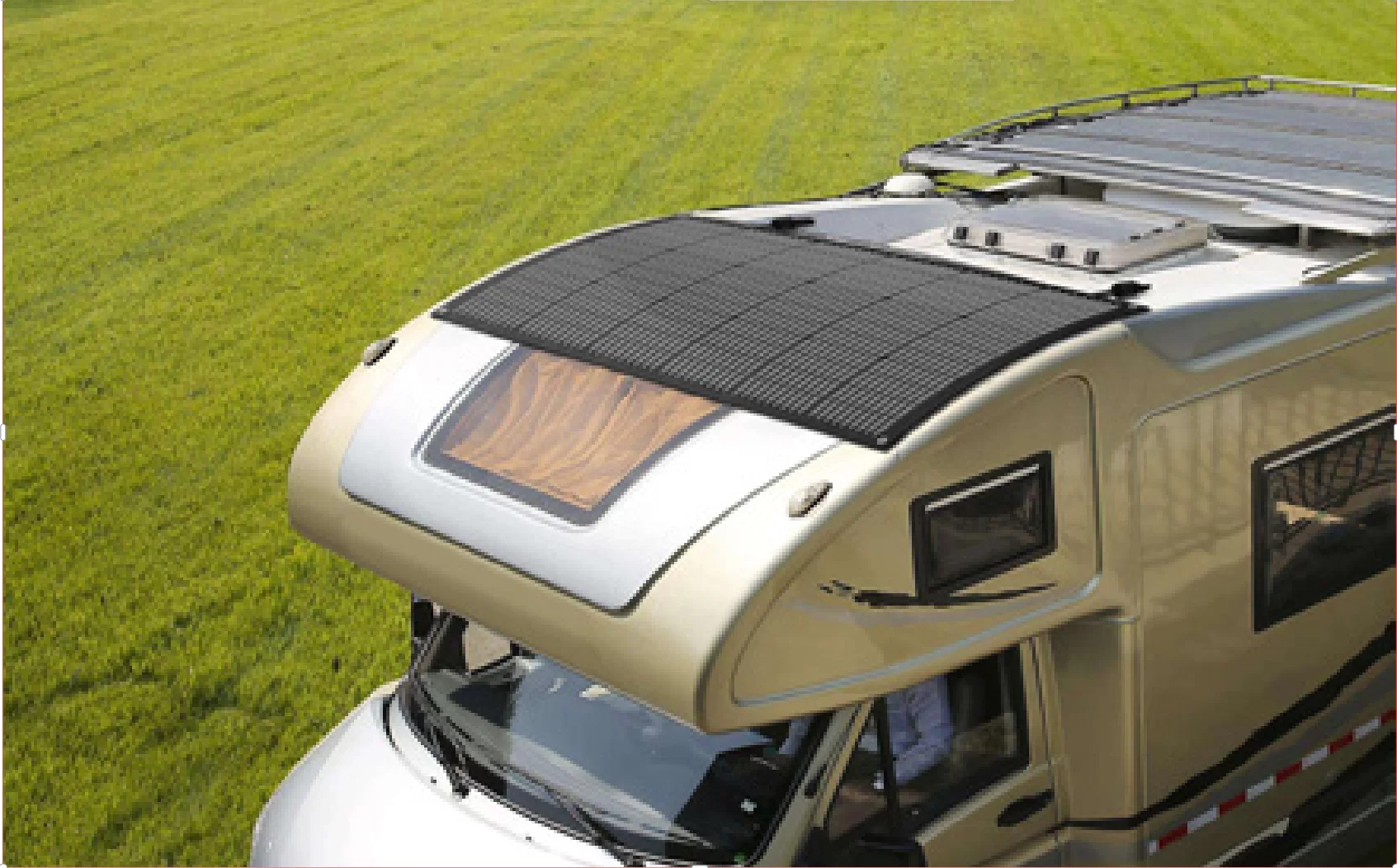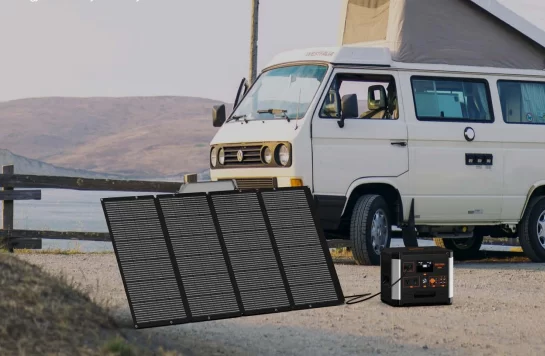What to Do When Power Goes Out on an RV Trip? Flexible Solar Panels to the Rescue
On the vast, open road, RVs serve as cozy, mobile homes, carrying people in pursuit of freedom. RV travel allows us to get close to nature and enjoy peace and relaxation. However, the journey isn’t always smooth—power outages can disrupt this dream adventure. But don’t worry! Flexible solar panels, with their unique advantages, have become a reliable solution for power outages during RV trips.
The charm of RV travel lies in its sense of freedom, but once the power goes out, this freedom diminishes significantly. Imagine this: you’re watching a breathtaking sunset, about to prepare a delicious dinner, only to realize your RV has no power. The fridge stops working, risking food spoilage; the lighting goes out, enveloping the small space in darkness; you can’t even use hot water to freshen up, and all comfort seems to vanish instantly. So, how do we deal with this situation?
A traditional solution might be to find a nearby campground or gas station to connect to an external power source for charging. However, this isn’t always feasible. In remote areas, campgrounds may be far apart, and gas stations may not provide RV charging facilities. A generator could be an option, but they are noisy, produce exhaust that pollutes the environment, and require carrying fuel, adding to the burden of travel.
Enter flexible solar panel, which offer a new hope for RV travelers. These panels have many notable advantages, making them an ideal solution for RV power problems.
First, flexible solar panels are incredibly adaptable. They can easily bend and fit various curved surfaces on an RV—whether on the roof, the sides, or the rear of the vehicle, there’s always a suitable spot for installation. This feature allows RVs to make the most of solar energy, enhancing power generation efficiency. Unlike traditional rigid solar panels, flexible ones are not limited by the RV’s shape, adapting better to different RV designs.
Secondly, flexible solar panels are lightweight. For an RV, weight is a critical factor. Overly heavy equipment can affect the vehicle’s handling, fuel efficiency, and increase the risks and costs of travel. The lightweight nature of flexible solar panel ensures that when installed on an RV, they don’t add too much weight, ensuring a safe and comfortable journey.
Furthermore, flexible solar panels are highly portable. When parked at a campsite, travelers can detach the panels and place them in a sunny spot to harness even more solar energy. This flexible usage provides RV travelers with more options and convenience.
Flexible solar panels are typically made from materials like flexible substrates such as polyimide, which offer good flexibility and high-temperature resistance. Photovoltaic materials like amorphous silicon or copper indium gallium selenide are also common, converting solar energy into electricity effectively. Different combinations of materials can influence the performance and price of the flexible solar panel.
Currently, the price of flexible solar panel varies depending on factors like brand, power, and quality. On average, the cost per watt can range from a few to more than a dozen yuan. Installing a flexible solar panel system suitable for an RV may cost anywhere from a few thousand to over ten thousand yuan. Of course, the specific price will depend on the size of the RV, its power needs, and the complexity of the installation.
There are a few things to keep in mind when installing flexible solar panels to ensure proper operation and safety. First, secure installation is essential. RVs experience bumps and vibrations during travel, and if the solar panels aren’t firmly installed, they could fall off, causing serious safety risks. Thus, during installation, it’s important to use professional adhesives, sealants, and mounting brackets to ensure the panels are tightly bonded to the RV.
Second, waterproofing should be considered. The roof and body of the RV must remain waterproof to prevent rain from seeping inside. When installing flexible solar panel, high-quality waterproof sealing materials should be used to seal any installation gaps, ensuring the RV’s waterproof system remains intact.
Additionally, to maximize power generation efficiency, the angle of the solar panels should be adjusted. The sun’s height and angle vary depending on the geographical location and time of day. By adjusting the angle of the solar panels to be as perpendicular to the sunlight as possible, power generation can be maximized. Some advanced flexible solar panels are equipped with sun-tracking devices that can automatically adjust their angle in real time, ensuring they consistently receive the optimal amount of sunlight.
While flexible solar panels provide power for the RV, a proper energy storage system should also be configured. The RV’s battery system is crucial for storing solar energy. Choosing the right battery capacity ensures that the RV can meet its power needs in various situations. Additionally, a high-efficiency charge controller should be installed to prevent the battery from overcharging or over-discharging, prolonging its lifespan.
In terms of cost, while the initial investment in flexible solar panel may be relatively high, in the long run, they can save RV travelers a considerable amount in electricity costs. By harnessing solar energy, dependence on external power sources is reduced, lowering the costs associated with campground charging or using a generator. Moreover, flexible solar panel have a long lifespan, typically exceeding 20 years, offering excellent value for money.
In conclusion, power outages during RV trips can be a headache, but flexible solar panel offer a reliable solution. Their flexibility, light weight, and portability make them an ideal choice for RV travelers. When installing and using flexible solar panel, attention should be paid to securing the panels, ensuring waterproofing, and adjusting the angle to optimize performance. At the same time, a well-configured energy storage system can make better use of solar power, providing a continuous and stable power supply for the RV. With the help of flexible solar panel, RV travelers can enjoy a free, comfortable, and eco-friendly travel experience.


